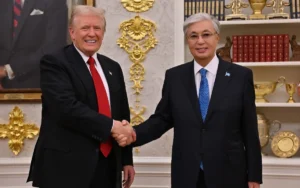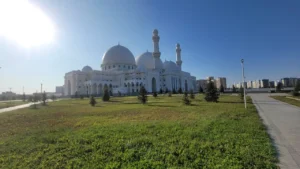Kazakhstan, Mongolia Deepen Economic Ties at 2nd Business Council Meeting in Astana

Astana, The Gulf Observer: Deputy Prime Minister and Minister of National Economy Serik Zhumangarin opened the 2nd meeting of the Kazakh-Mongolian Business Council in Astana, underscoring growing trade relations and expanding opportunities for cooperation between the two nations.
In his address, Zhumangarin highlighted the importance of the Mongolian parliamentary delegation’s visit, led by Chairman of the State Great Khural Dashzegve Amarbayasgalan. He stressed that such exchanges reflect “the high level of mutual trust and readiness of the two countries to further strengthen partnership.”
“Kazakhstan and Mongolia are linked not only by geography and the common history of the Great Steppe, but also by spiritual affinity and common cultural traditions. For centuries, our peoples have maintained friendship, mutual understanding and good neighborly relations. Today, new opportunities are opening up before us to fill this heritage with modern content and bring cooperation to a brand new level,” Zhumangarin stated.
The forum brought together government officials, parliamentarians, representatives of Atameken Chamber, the Foreign Commerce Chamber, quasi-state companies, and over 100 business leaders from both countries.
Expanding Connectivity and Cooperation
Discussions focused on resuming air service between the capitals, launching new direct flights, and building a highway to better connect Central and East Asia. The two sides also explored prospects for joint production of environmentally friendly agricultural products, cooperation in mining and energy sectors, and strengthening scientific and educational exchanges.
Kazakhstan announced readiness to provide educational grants for Mongolian citizens and train specialists in engineering, IT, and other high-demand fields.
Trade Growth
From January to July 2025, bilateral trade turnover reached $74 million — a 3.6 percent increase compared to the same period in 2024. Kazakhstan’s exports to Mongolia accounted for $71.5 million, largely comprising processed and agricultural products.
Zhumangarin called on the business community to take a more active role in shaping new forms of cooperation and moving from ideas to practical implementation of joint projects.


